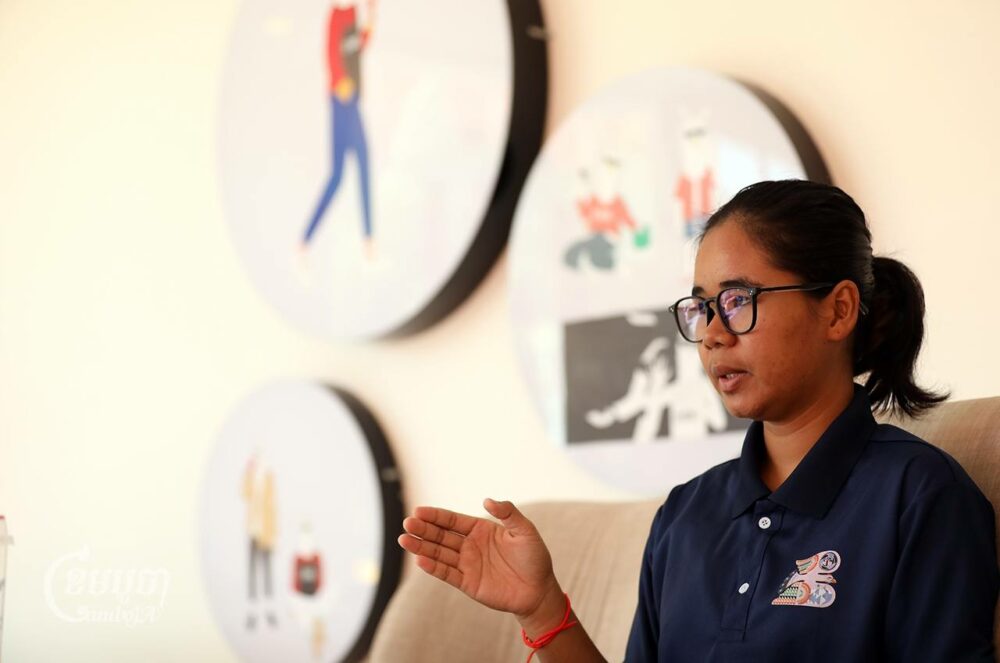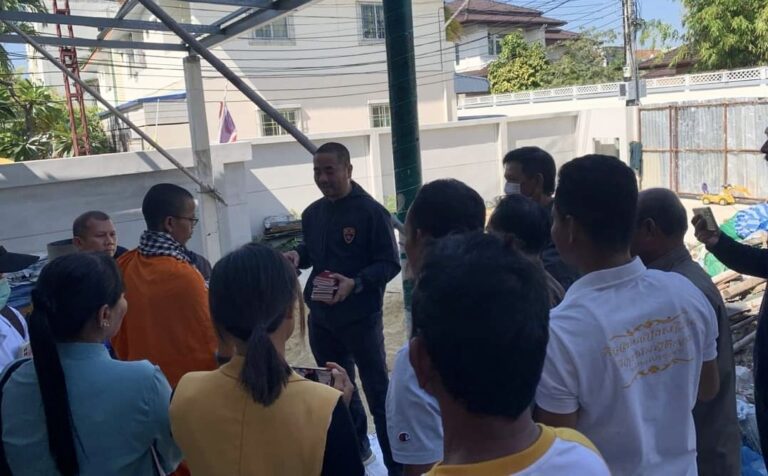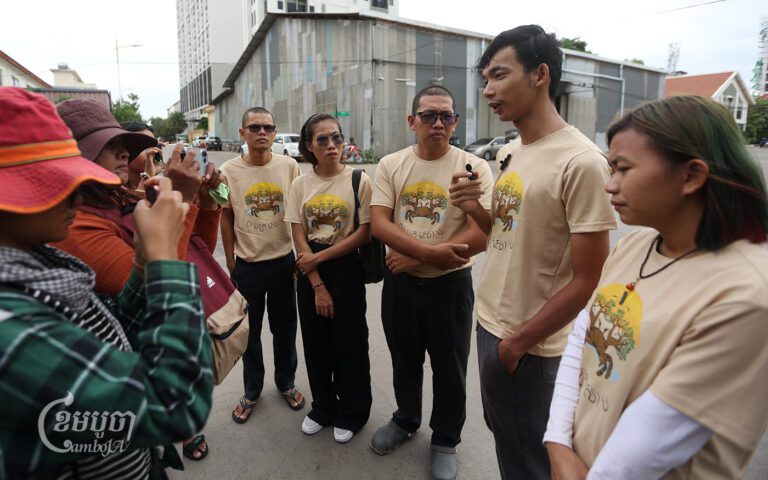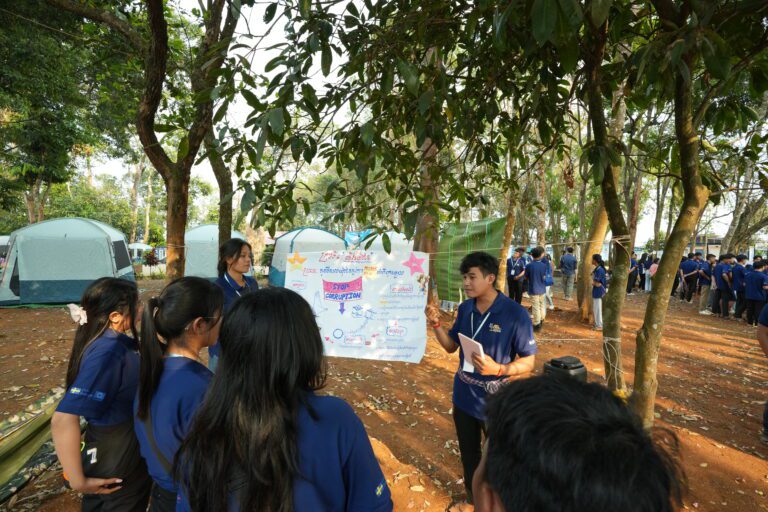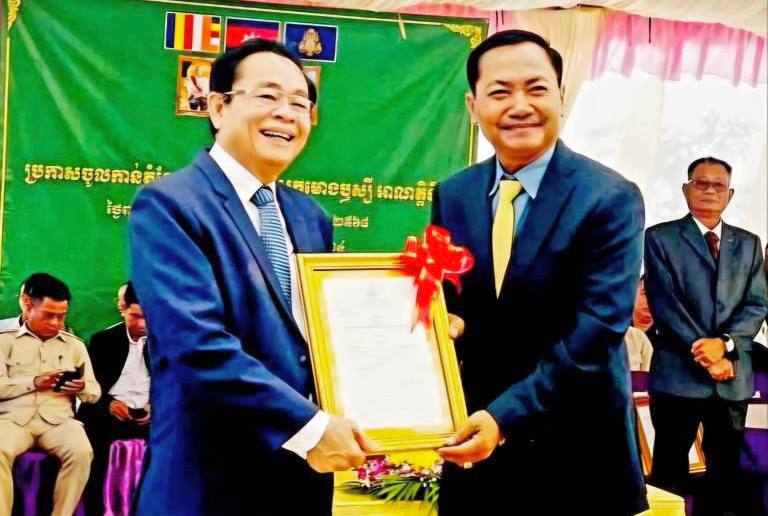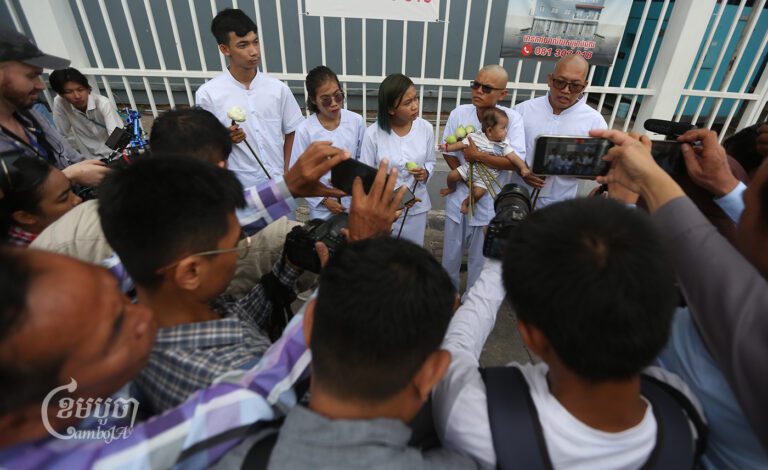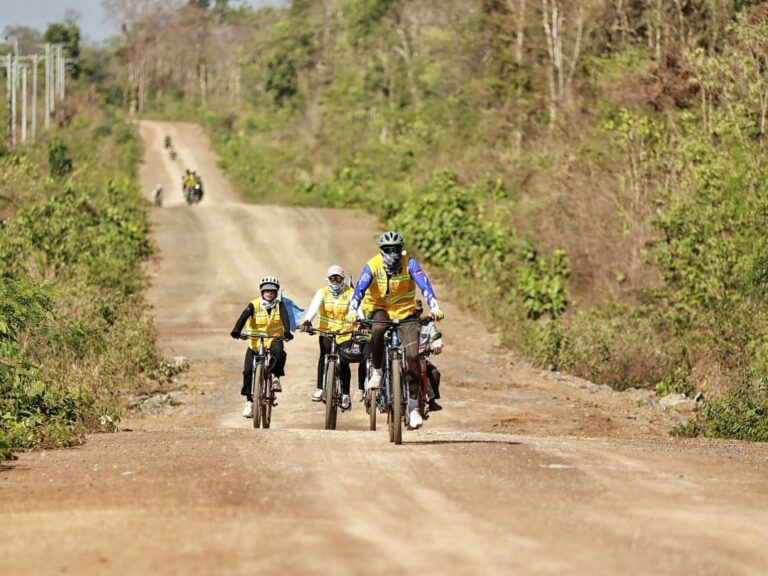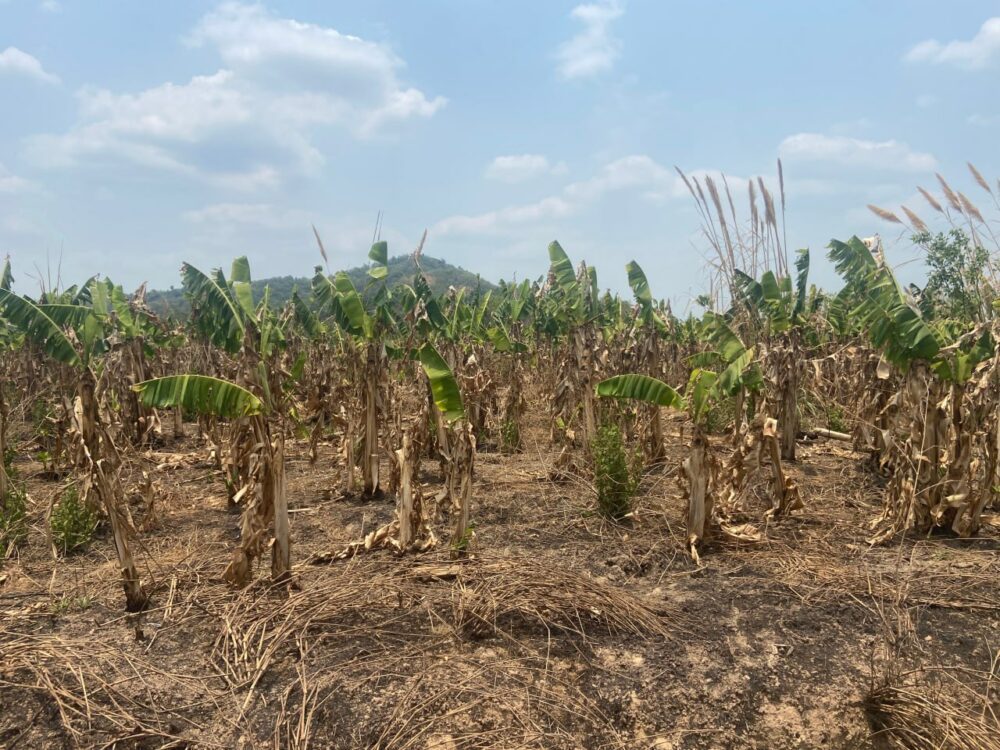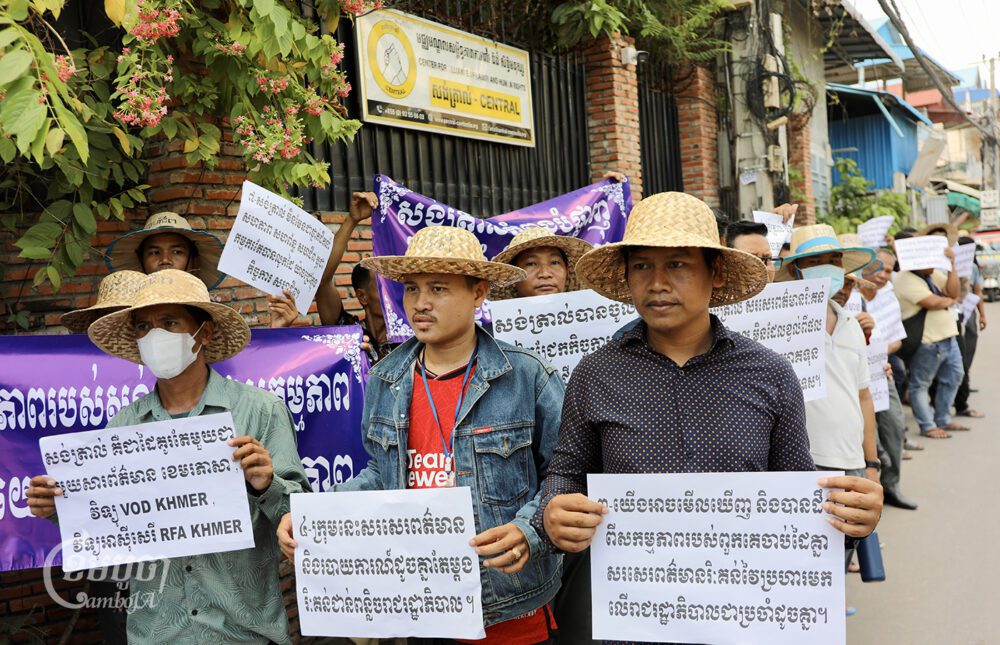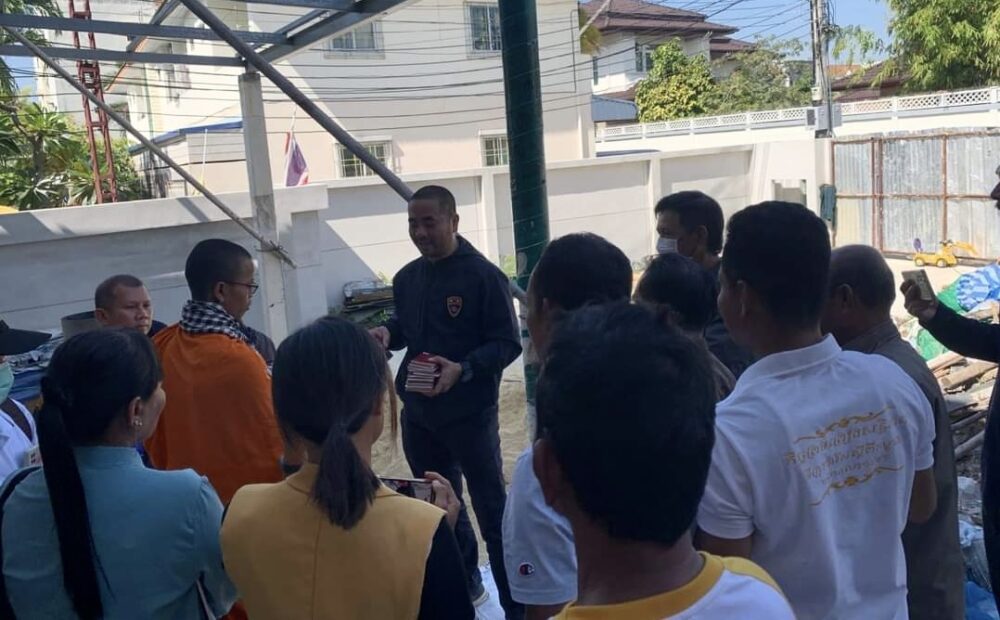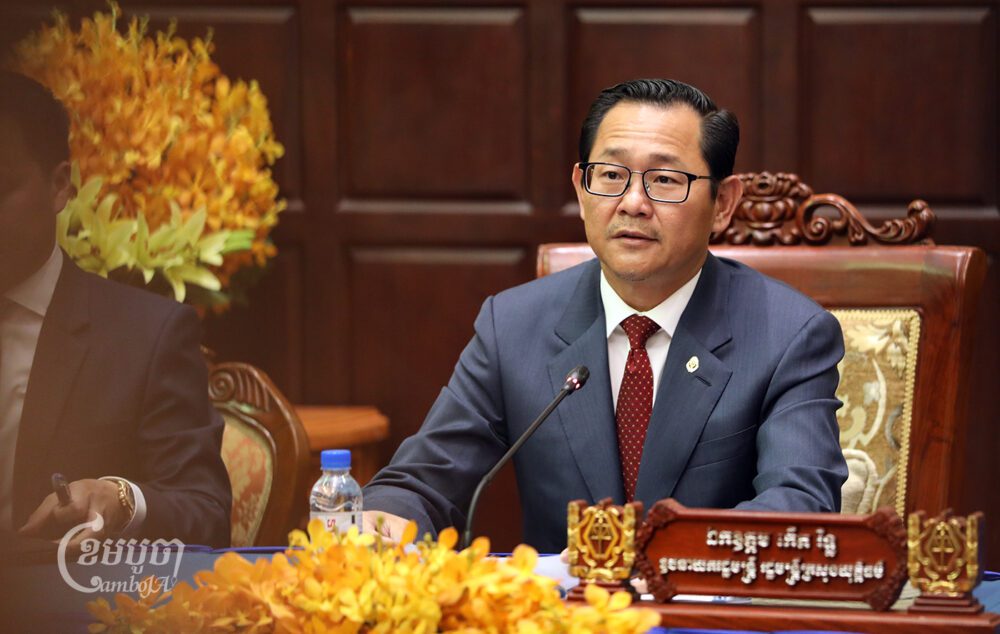In the last few years, the incitement charge has been used as a tool to threaten youths’ activity, including political activists, in addition to plotting charges, which have a more serious penalty than incitement, said 24-year-old environmental activist Ly Chandaravuth.
Chandaravuth, who became a social activist in 2018, is facing trial after being charged with plotting against the government with nine other environmental activists, including Mother Nature co-founder Spanish national Alejandro Gonzalez-Davidson.
“It is not true if we say we are not afraid [of legal action] … we are working on challenging issues. We think and worry everyday about losing our freedom and meeting our family.” he said.
“I have seen an outstanding [number of] lawsuits [relating to] incitement charges against young activists,” Chandaravuth said.
Another popular accusation is “defamation”, which is used to put pressure on financial properties of anyone who dared to directly criticize “corrupt persons who are in power or are high ranking officials”.
According to Article 305 of the Criminal Code, an allegation in bad faith, which injures the honor or reputation of a person or an institution shall be punishable by fine from 100,000 riel to 10 million riel ($2,500).
However, the claim for damages is three or four times more than the fine which becomes a burden on the accused’s finances, Chandravuth said.
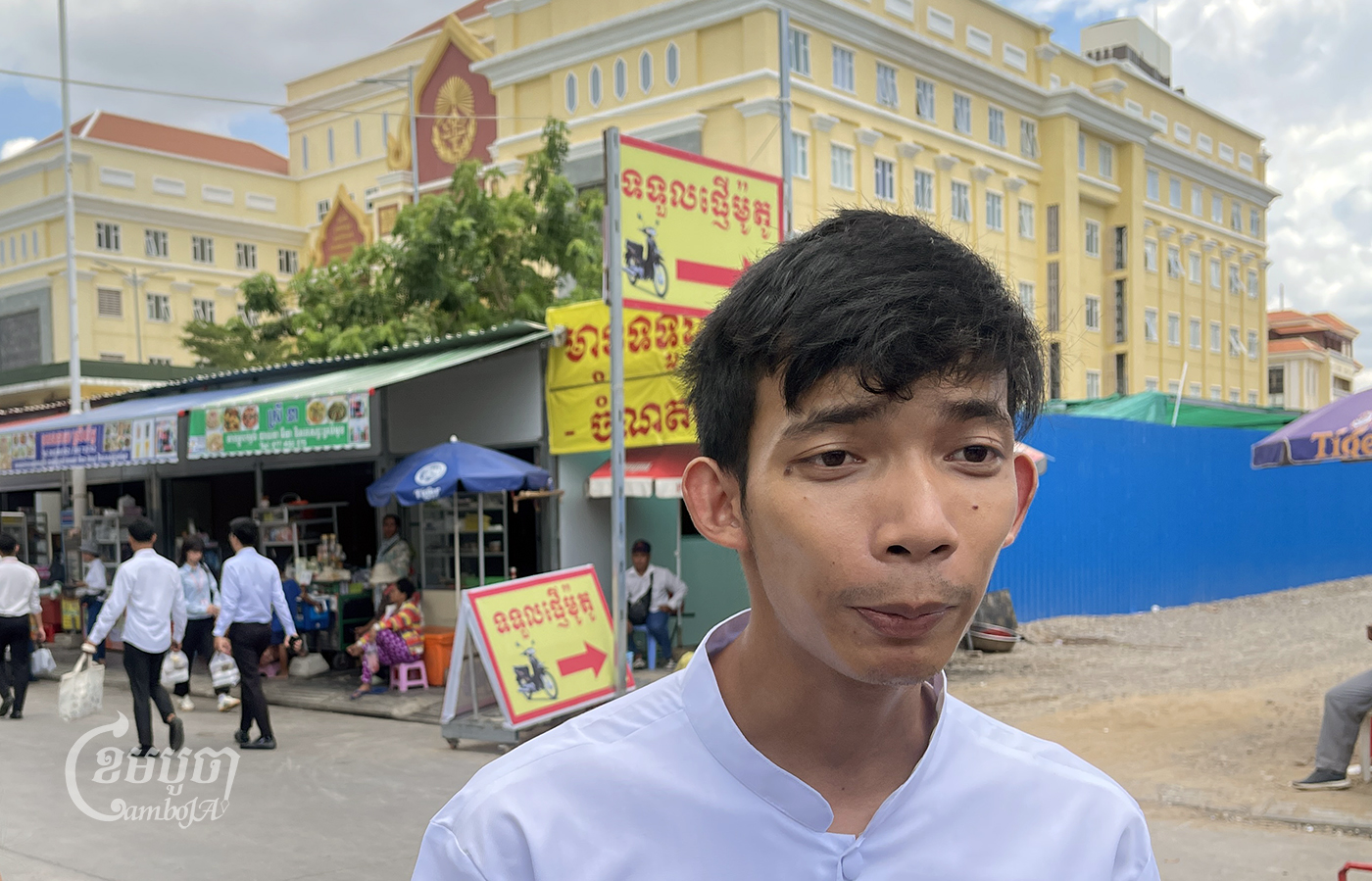
Lawsuits and threats
Article 495 of the Cambodian Criminal Code stipulates that incitement to commit a felony or disturb social security is punishable by imprisonment from six months to two years whereas Article 453 states that plotting involves a resolution agreed by two or more persons to commit an attack. This can result in a jail term of five to 10 years.
These accusations have become legal tools against political party opponents and discouraged young activists who exercise their right to advocate human rights and social issues in the interest of the public.
In 2023, Cambodia Human Rights Watch said the government had “stepped up harassment and arbitrary arrests of opposition party members and activists”, while urging the release of those who were wrongfully detained.
Back in 2021, CamboJA News reported that 14 activists were convicted on charges of incitement for organizing a protest which called for the release of unionist Rong Chhun, who was jailed at the time.
Senior leader of opposition Candlelight Party Son Chhay risks having his property seized after he was defeated in a $1 million defamation case filed by the Cambodian People’s Party (CPP). Chhay was allegedly involved in “voting irregularities and electoral fraud” in the 2022 commune election.
Chandaravuth said looking at this, he was worried as he was aware of the “independence of the court”. “People who have cases in court, such as human right defenders, political activists have no hope of [being found] innocent,” he added.
“I don’t think our verdict will be positive […] our charges will not be dropped. But we hope to have a chance to tell people the truth, including youths, who support us, and the media, that we did not betray the nation. We are innocent,” he remarked.
Legal expert and attorney Sok Sam Oeun viewed that the Criminal Code and Criminal Procedure Code still have “loopholes” and that the law can be “interpreted” by the court officials.
“We see that the obstacle is the law and [the way] the court interprets it, so we can’t deny [that this doesn’t happen]. In order to reduce [challenges], we have to revise the law and be clearly written,” he said.
“[In] our court system, when someone files a complaint, the offense is punishable up to one year in prison, with detention,” Sam Oeun said. “Whether it is true or not, they have to [be placed] in pretrial detention first, so it is a problem on that point.”
He noticed that a majority of Cambodian youths, including their families, are afraid that working on human rights issues will get them jailed or killed. This scares youths from engaging in social issues.
“Our constitution allows citizens to engage in social issues but the implementation [of the law] is different, so they [youths] don’t pay attention to political issues,” he said.
He urged the government to amend the Criminal Code relating to pretrial detention. If those offenses do not have pretrial detention, people would not file complaints.
‘Nothing wrong with the law’
NGO rights group Licadho operations director Am Sam Ath observed that youths who have been working to protect the environment, human rights and social issues have been arrested and convicted for defamation, incitement, insulting the King, and most recently, “plotting”.
“I have observed that incitement charges in almost every case are against youths,” he said. “Obstacles, fear of arrest and detention of young people, and lawsuits scare youths from participating in social and political affairs.”
Seeing young people who are active in environmental, natural resources, protection of human rights and social work impacted by lawsuits, accusations and detention is among the main barriers to youth participation in these issues, he added.
Furthermore, pressure from parents and families form an obstacle for young people to participate in social and political work. Schools also do not allow talks about politics.
In April this year, human rights activist Koet Saray was put in pretrial detention after an incitement charge following a meeting with villagers, who were embroiled in a dispute over a land in Preah Vihear province.
Prior to that, outspoken human rights group Adhoc deputy director Soeng Senkaruna was sued by the ruling CPP for a comment he allegedly made with a publication. The party demanded compensation of $500,000.
Justice Ministry spokesperson Chin Malin objected to the call to revise laws, noting that they “complied with human rights principle, the process of democracy, and is no different from other democratic countries”.
“Our problem here is not the law but it is about the activity that has violated the law,” he said, adding that action must be taken on those who broke the law. He said there is no need to be afraid of the law if one has done nothing wrong.
“We have seen a majority of citizens exercising their rights freely in line with the constitution, without infringing the rights and freedoms of others. They don’t have a problem with the law, except a small group who have acted with ill-intent, that’s why they are afraid,” Malin said.
He added that generally, people who are afraid of the law, “have a trick”, or people with an “ill-intent to commit unlawful activities, will be afraid”.
Civil and political engagement
Transparency International Cambodia published a survey on citizens’ involvement and political participation in 2024, which showed that over 80% of young Cambodians were not interested in politics, but only 17% saying they are keen on it. The survey was conducted directly with 1,600 young Cambodians aged between 18 and 35.
Sim Choeung, 34, a youth with Cambodia Reform Party, agreed with the survey, saying that low civil and political engagement was due to legal actions which were viewed as “blocking” youth participation.
“It [participation] has declined and people dare not show up because they are worried about the restrictions on the right to freedom of expression. But, there are still some who [participate] in the activities through social media,” he said.
Choeung felt that youths were concerned about legal actions, accusations, arrests and detention. “It makes them worry about their lives, personal safety and livelihood.”
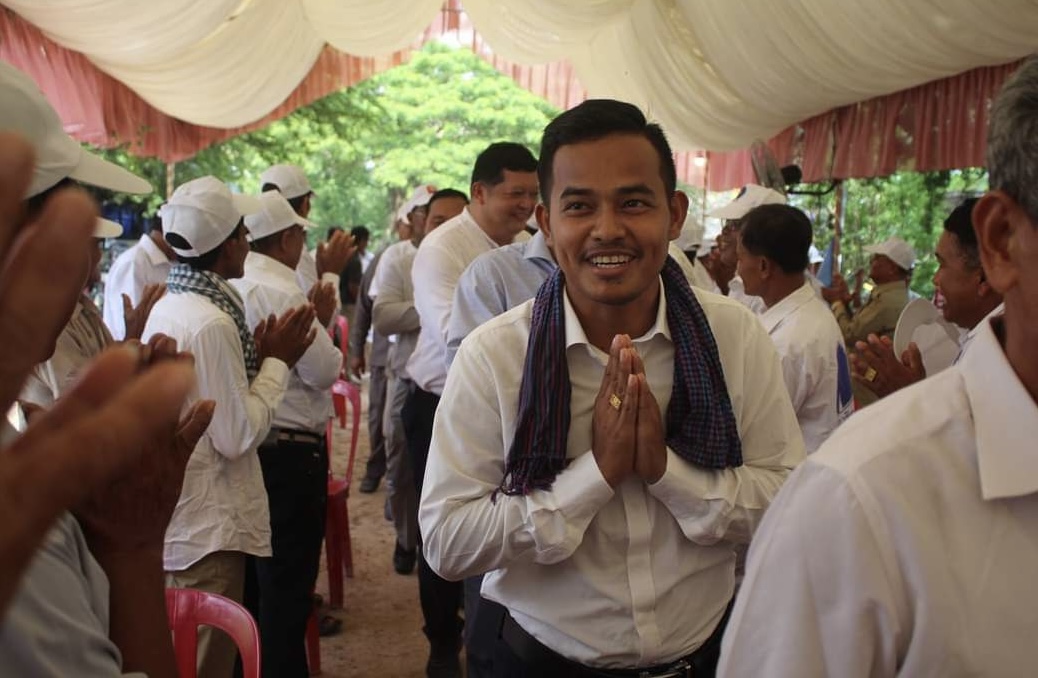
Youths were actively engaged in politics in 2012 and 2013 when two opposition parties, Sam Rainsy Party and Human Rights Party, merged to form the Cambodia National Rescue Party (CNRP), but the involvement declined after the dissolution of CNRP in 2017, he noticed.
Inactivity by youths in politics would cause a negative impact on socio-economic development, including their contribution to society.
“It has affected our nation’s future […] as we know their participation in social and politics [which is] in line with the law has significantly encouraged development,” Choeung said.
“I think restricting rights and freedoms should not apply to youths who are willing to build the nation with the government as this country belongs to every Cambodian,” he added.
To encourage more young people to care about social issues, Choeung called on political leaders, especially the government to “empower” youths and women at grassroot levels, and provide an opportunity to hold decision-making positions.
Cambodian Youth Network member Dam Sosreyneang, 23, found that youths’ not taking part in social issues in the last few years is because of “personal safety and family pressure”, including legal action against activists. It has discouraged them from exercising their rights.
“When human rights and environmental activists are charged with incitement, it makes youths think about taking up jobs which are in line with the government,” she said.
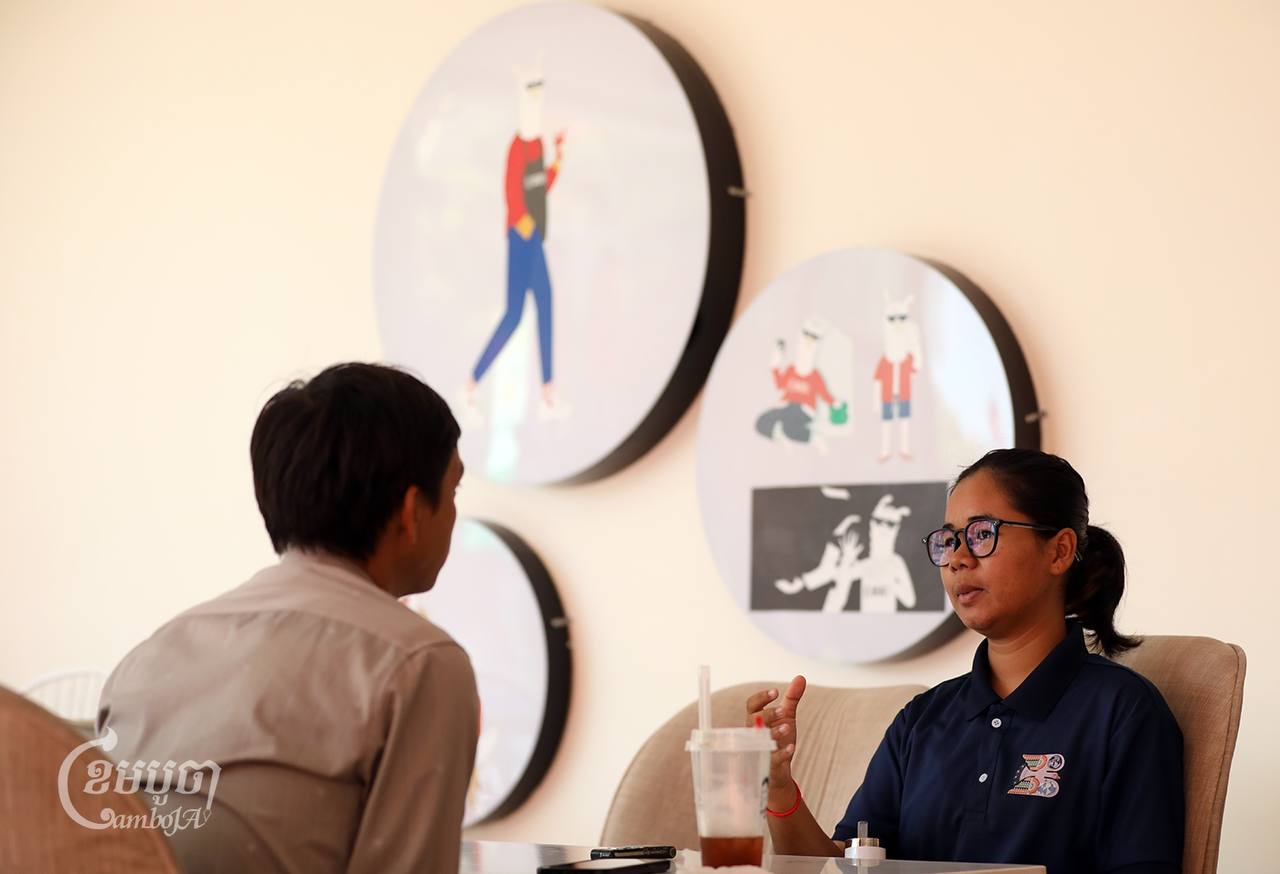
There is still a low representation of youths expressing their opinions, especially on social and environmental issues, Sosreyneang said, given that many activists have been arrested and put in pretrial detention in prison.
“My family has instructed me not to get involved in politics, but I am not worried because it is my right. If I don’t dare to exercise my right, who will exercise it for me? I will continue to contribute as much as I can,” Sosreyneang said.
“I think when youths participate to uphold citizens’ rights, it has a positive effect on our country and we will understand the policies of developing the nation,” she said. “When we know our rights, we can use them without being pressured by anyone.”
Observe law enforcers
Unionist Tiv Sreya, working at a garment factory in Phnom Penh, said there are fewer workers who want to become union representatives as they are afraid of losing their job or facing lawsuits.
“Most workers do not want to become union activists. So, they don’t know [the law]. If workers approach them for help, they don’t know how to resolve it,” she said.
“Secondly, if they join a union, they are afraid the factory [owner] will fire them. Even now we have several union activists but they are not active because they are afraid,” Sreya said.
It is challenging with her factory supervisor currently because they do not care who the union representatives are. They are often threatened with dismissal if the factory is not satisfied and when workers fail to produce according to demand.
For instance, she was called up by the management which attempted to fire her, but failed because workers protested on her behalf, she said.
“If they don’t join the union, they could face challenges, for example when they are fired, they won’t know how to resolve or who can help them.
“It is not easier if we are hard working because they [management] have determined the number of [clothes to] stitch, for example they need to produce 2,000 clothes per day, so we have to do it,” Sreya said.
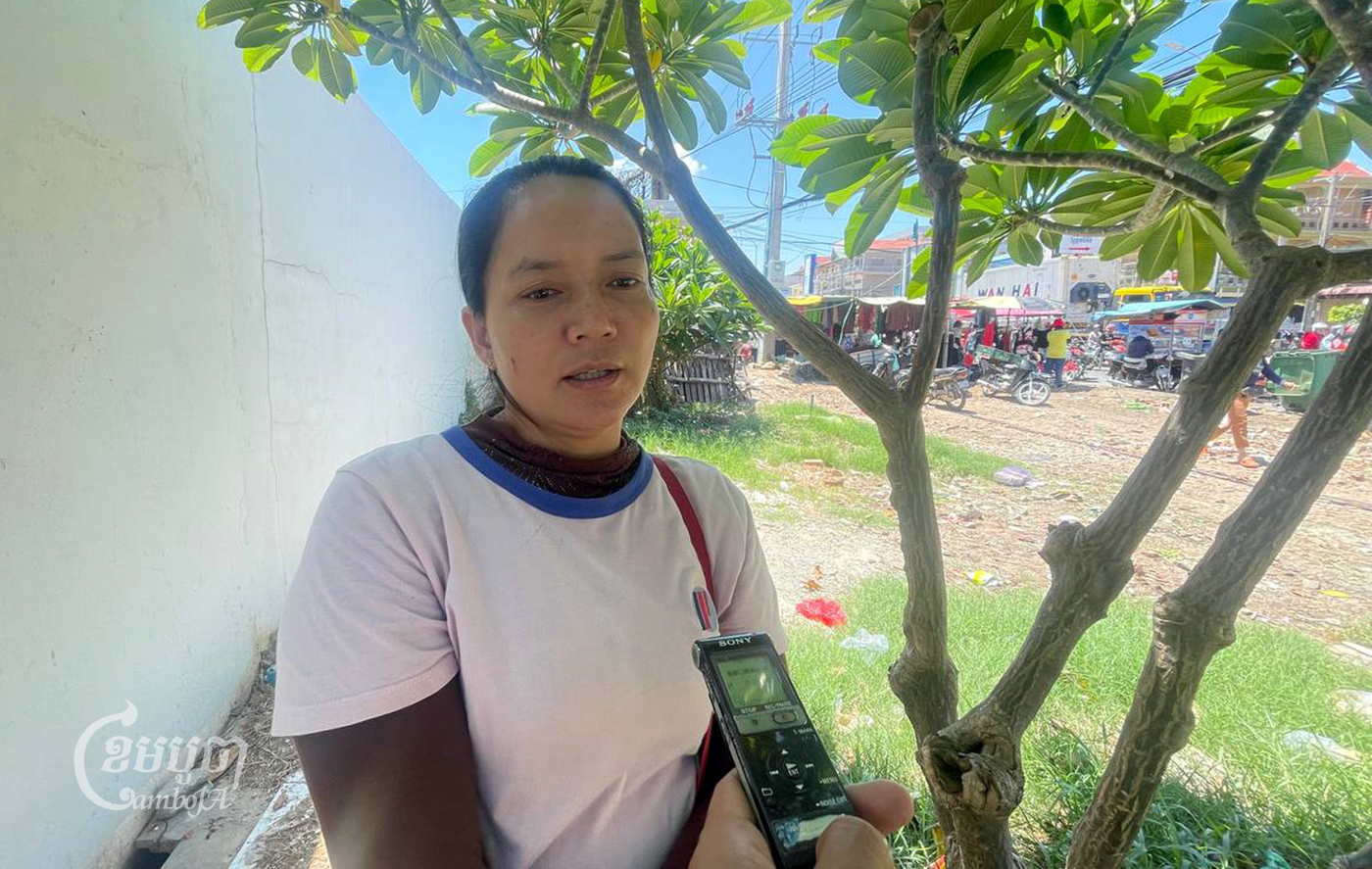
In her factory, there are about 30 union representatives but some have issues trying to resolve the problem of workers.
She said to improve the garment sector, factory management needs to respect labor law and workers’ rights, while workers must be brave to protect their rights.
Senior year university student, Chun Sokthoutheareach, said youths play an important role in society and politics, especially to “observe” law enforcement officers, and accountability, in relation to public service.
“If we [youths] are inactive, public service will be poor,” he said, adding that most youths nowadays think about studying, their safety and family economics rather than advocate on social issues.
“The [government] is committed to have youths engage in society and politics but in actual fact that role cannot influence decision making,” Sokthoutheareach said.
He agreed that youths and activists were not active these days due to the present situation where space for freedom of expression and assembly was shrinking.
Social media campaigns
Gender and Development for Cambodia executive director Eng Chandy expressed difficulty finding young women to represent the community as their parents were worried they would be arrested if they got involved in political issues.
She said although they have worked with women in provinces, it is hard to find young women now to join campaigns or training about gender issues in their communities.
Young women play a significant role because they know the problems faced by the women in their community.
“If young women weren’t involved in the resolution of social and political problems, we will not be able to respond to many people who are suffering or are less privileged in our society,” Chandy said.
However, they should be inspired to engage in society and politics, as there are problems in their community. “Some of our programs have trained young women on leadership, advocacy, and gender issues in their community. Then, they will receive some budget to resolve problems in their communities,” she said.
Although young people have been working in society and politics, she noticed a decline compared to the last 10 years when they were more active and expressed their opinion about politics and democracy. They have turned to campaigning online through Facebook and Tiktok to voice their views inside and outside the country.
According to Mother Nature’s Chandaravuth, three main issues obstruct young people’s engagement in society and politics. Firstly, oppression by the government which uses legal action, such as detention and threats, and warnings in school to not talk about politics.
Secondly, families in Cambodia, which experienced the civil war during the Khmer Rouge, have made Khmer people fearful. They taught their children not to care about social issues as they believed it was dangerous work.
Thirdly, there is a lack of support for youths, who were brave and actively expressed critical views, and effort to encourage them to care about the community.
“I think if there is encouragement from family and financial support, there will be more young people who are eager to speak up on social issues,” Chandaravuth said.
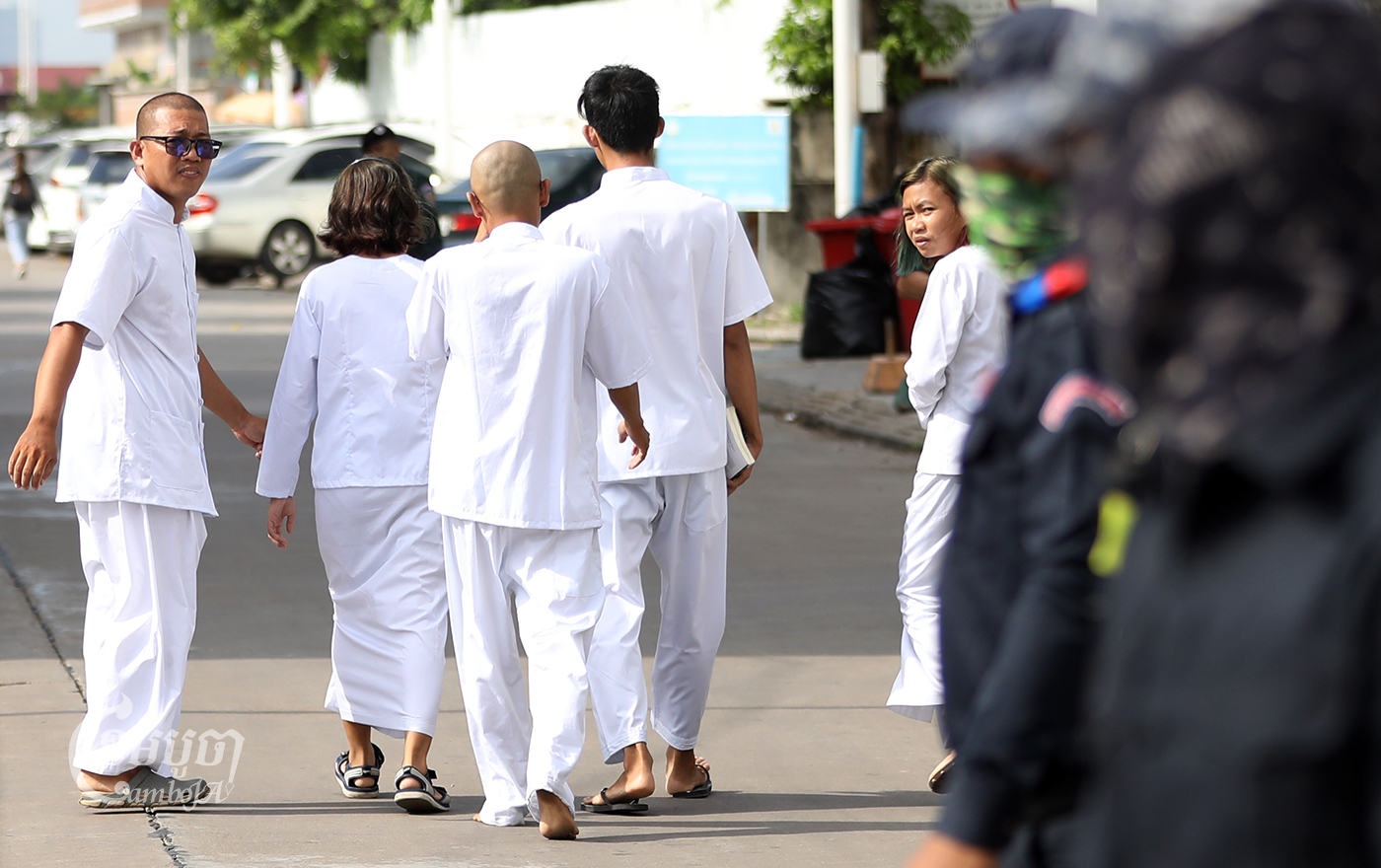
He thinks that if they do not participate to ensure positive changes in society, it could affect nation building. “If we fear doing nothing right now, we will suffer in the future.”
To improve the situation in the future, Chandaravuth called on the government to uphold the constitution so that citizens can express their opinion and concerns about social issues in their communities. They should be allowed to participate in socio-economic activities and affiliate in politics.
Political analyst Em Sovannara shared a similar view regarding civil society groups. He said young people have ignored affiliation in social and political affairs because of legal threats and family pressure.
“We can say that legal action is a factor as people are not able to trust the justice system, the right to exercise freedom of expression is restricted or are threatened by Article 495 of the Criminal Code for incitement,” he said.
“Another thing is the six months pretrial detention which has caused citizens to ignore social and political issues,” Sovannara said.
Politics is a “sensitive word”, especially among the older generation, who taught their children not to care about political issues, he added.
He explained that when youths and civilians are inactive in social politics, society will be impacted by poor rule of law, and will become a society which threatens citizens’ rights and freedoms contrary to the constitution.


